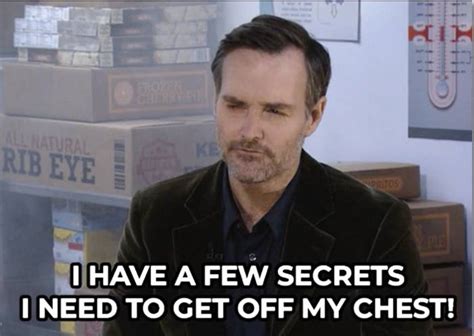
Humans are notoriously tight-lipped, but sometimes secrets spill. A recent online compilation highlighted 23 instances where individuals shared unsettling confessions, ranging from workplace improprieties to deeply personal revelations, showcasing a spectrum of human behavior and moral dilemmas. These confessions, originally shared anonymously online, offer a glimpse into the hidden aspects of people’s lives and the choices they make behind closed doors.
The confessions, curated from various online platforms, reveal a diverse array of situations and motivations behind the shared secrets. One recurring theme involves workplace scenarios where employees admitted to actions such as stealing from their employer, sabotaging colleagues, or engaging in unethical behavior. For example, one confession detailed an employee who admitted to systematically embezzling small amounts of money over several years, rationalizing their actions due to perceived unfair treatment by the company. Another revealed an instance of deliberate sabotage, where an individual intentionally damaged a coworker’s project to advance their own career prospects.
Beyond the workplace, the confessions also delve into more personal and intimate aspects of people’s lives, including infidelity, family secrets, and moral compromises. Several confessions revolved around instances of cheating on a partner, with individuals grappling with guilt, regret, and the potential consequences of their actions. In some cases, these confessions involved long-term affairs, while others described one-time lapses in judgment. Family secrets also featured prominently, with individuals sharing hidden truths about their relatives, such as undisclosed adoptions, hidden pasts, or long-standing feuds.
The act of confessing, even anonymously, can serve as a cathartic release for individuals grappling with guilt or shame. The online environment provides a safe space for people to share their secrets without fear of direct repercussions, allowing them to unburden themselves and potentially seek validation or support from others. However, the anonymity also raises ethical considerations, as it can enable individuals to share potentially harmful or defamatory information without accountability. The confessions offer a fascinating, albeit unsettling, look into the complexities of human nature and the secrets people keep.
Workplace Confessions: A Den of Deceit?
The workplace appears to be a fertile ground for secrets, judging by the number of confessions related to professional misconduct. Several individuals admitted to engaging in unethical or illegal activities, highlighting the pressures and temptations that can arise in a competitive work environment.
One individual confessed to stealing office supplies for personal use, justifying their actions by claiming that the company was excessively profitable and wouldn’t miss the missing items. While the monetary value of the stolen goods may have been relatively small, the act itself constitutes theft and raises questions about the individual’s integrity.
More seriously, another confession detailed a case of deliberate sabotage, where an employee intentionally deleted important files from a colleague’s computer. The motivation behind this act was purely self-serving, as the individual hoped to undermine their colleague’s performance and improve their own chances of promotion. This type of behavior not only violates workplace ethics but can also have serious legal consequences.
“I deleted a coworker’s presentation right before a big meeting,” one confession stated. “I felt guilty afterward, but I got the promotion.” This exemplifies the cutthroat nature that can sometimes permeate professional environments.
The confessions also revealed instances of employees manipulating data, falsifying records, and engaging in other forms of fraud. These actions can have significant repercussions for the company, potentially leading to financial losses, legal liabilities, and reputational damage. One individual admitted to inflating sales figures to meet performance targets, while another confessed to covering up safety violations to avoid regulatory penalties.
These workplace confessions highlight the importance of ethical leadership, strong internal controls, and a culture of accountability. Companies need to create an environment where employees feel empowered to report misconduct without fear of retaliation and where ethical behavior is valued and rewarded.
Infidelity and Betrayal: The Dark Side of Relationships
Beyond the workplace, the confessions also shed light on the complexities and challenges of personal relationships, particularly in the realm of infidelity. Several individuals admitted to cheating on their partners, revealing the emotional turmoil, guilt, and potential consequences that accompany such actions.
One confession described a long-term affair that began as a casual friendship and gradually evolved into a romantic relationship. The individual admitted to feeling conflicted about their actions but also found themselves drawn to the excitement and novelty of the affair. This situation highlights the slippery slope that can lead to infidelity and the importance of setting clear boundaries in relationships.
Another confession involved a one-night stand that occurred during a business trip. The individual expressed deep regret and remorse for their actions, fearing the potential impact on their marriage and family. This scenario underscores the impulsive nature of some instances of infidelity and the devastating consequences that can result from a moment of poor judgment.
“I cheated on my spouse while on a business trip,” one person admitted. “I regret it every single day.”
The confessions also revealed instances of online infidelity, where individuals engaged in emotional or sexual relationships with people they met online. This form of infidelity can be particularly insidious, as it often involves a gradual escalation of intimacy and can be difficult to detect. One individual confessed to spending hours chatting with a stranger online, eventually developing strong feelings for them despite never having met them in person.
These confessions about infidelity highlight the importance of communication, trust, and commitment in maintaining healthy relationships. Couples need to be open and honest with each other about their needs and expectations and be willing to address any issues that may arise. Infidelity is often a symptom of underlying problems in the relationship, and addressing these problems can help prevent future betrayals.
Family Secrets: Burdens of the Past
Family secrets, another recurring theme in the confessions, can have a profound impact on individuals and their relationships with their relatives. These secrets often involve hidden truths about the past, such as undisclosed adoptions, hidden pasts, or long-standing feuds.
One confession revealed that an individual discovered they were adopted after stumbling upon old documents in their parents’ attic. The discovery shattered their understanding of their identity and led to a period of emotional turmoil as they grappled with the implications of their adoption. This situation highlights the importance of transparency and honesty in families, even when dealing with sensitive topics.
Another confession involved a family feud that had been simmering for decades, stemming from a dispute over inheritance. The individual admitted to perpetuating the feud by spreading rumors and engaging in petty acts of revenge. This scenario underscores the destructive power of unresolved conflicts and the importance of forgiveness and reconciliation.
“I found out I was adopted when I was 30,” someone confessed. “My parents never told me.”
The confessions also revealed instances of family members hiding dark secrets, such as criminal activity or substance abuse. These secrets can create a climate of fear and distrust within the family, making it difficult for members to connect and support each other. One individual confessed to knowing about their father’s involvement in illegal activities but had remained silent out of fear of retaliation.
These confessions about family secrets highlight the importance of communication, empathy, and understanding in maintaining healthy family relationships. Families need to create a safe space where members feel comfortable sharing their thoughts and feelings without fear of judgment. Addressing family secrets can be a difficult and painful process, but it can also lead to healing and reconciliation.
The Psychology of Confession: Why Do People Spill the Beans?
The act of confessing, even anonymously online, raises questions about the underlying psychological motivations. Why do people feel compelled to share their secrets, even when there is no direct benefit to doing so? Several factors may contribute to this phenomenon.
Firstly, confession can serve as a form of catharsis, allowing individuals to release pent-up emotions and relieve the burden of guilt or shame. By sharing their secrets, they can unburden themselves of the emotional weight they have been carrying and potentially experience a sense of relief.
Secondly, confession can be a way of seeking validation or support from others. By sharing their secrets, individuals may be hoping to receive empathy, understanding, or forgiveness from others. The online environment, in particular, can provide a sense of community and anonymity, making it easier for people to share their vulnerabilities without fear of judgment.
Thirdly, confession can be a way of seeking attention or recognition. Some individuals may be motivated by a desire to be seen as interesting or unique, and sharing their secrets can be a way of achieving this goal. The online environment can be particularly conducive to this type of behavior, as it allows individuals to reach a large audience and potentially gain notoriety.
Finally, confession can be a way of testing the waters and gauging the potential consequences of their actions. By sharing their secrets anonymously, individuals can assess how others might react to their behavior without revealing their identity. This can help them make informed decisions about whether or not to reveal their secrets in real life.
Ethical Considerations: The Dark Side of Anonymous Confessions
While anonymous confessions can provide a valuable insight into human behavior, they also raise ethical considerations. The anonymity that allows individuals to share their secrets without fear of repercussions can also enable them to share potentially harmful or defamatory information without accountability.
One concern is the potential for false or exaggerated confessions. Individuals may be tempted to embellish their stories or fabricate entirely to gain attention or shock value. This can lead to the spread of misinformation and can damage the reputations of innocent individuals.
Another concern is the potential for cyberbullying or harassment. Anonymous confessions can be used as a platform for individuals to target and harass others, without fear of being identified. This can have serious consequences for the victims, potentially leading to emotional distress, reputational damage, and even physical harm.
Furthermore, anonymous confessions can raise legal issues, particularly if they involve admissions of criminal activity. While the anonymity may protect the confessor from immediate prosecution, law enforcement agencies may still be able to use the information to investigate potential crimes.
Therefore, it is important to approach anonymous confessions with a critical eye and to be aware of the potential ethical implications. While they can provide a fascinating glimpse into the hidden aspects of human life, they should not be taken at face value and should be viewed with a healthy dose of skepticism.
The Impact of Social Media: Amplifying the Culture of Confession
Social media platforms have played a significant role in amplifying the culture of confession, providing individuals with a global stage to share their secrets and experiences. The anonymity and accessibility of these platforms have made it easier for people to share their vulnerabilities and connect with others who may have similar experiences.
Platforms like Reddit, Whisper, and even mainstream social media sites like Twitter and Facebook, provide avenues for anonymous posting and sharing, blurring the lines between public and private. This has led to a proliferation of online confessions, ranging from trivial admissions to deeply personal revelations.
The impact of social media on the culture of confession is both positive and negative. On the one hand, it can provide a valuable outlet for individuals who may feel isolated or alone. By sharing their secrets, they can connect with others who understand their experiences and potentially find support and validation.
On the other hand, social media can also exacerbate the negative aspects of confession, such as the spread of misinformation, cyberbullying, and the erosion of privacy. The anonymity and reach of these platforms can make it easier for individuals to engage in harmful behavior without accountability.
Therefore, it is important to be mindful of the potential impact of social media on the culture of confession and to use these platforms responsibly. Individuals should be aware of the potential consequences of sharing their secrets online and should take steps to protect their privacy and avoid harming others.
Conclusion: A Glimpse into the Human Psyche
The 23 unsettling confessions offer a fascinating glimpse into the complexities of human nature and the secrets people keep. They reveal the pressures and temptations that can lead individuals to engage in unethical or illegal behavior, the emotional turmoil and consequences of infidelity, and the impact of family secrets on individuals and their relationships.
While these confessions can be disturbing, they also provide valuable insights into the human psyche. They remind us that we are all flawed and that we all make mistakes. By understanding the motivations behind these confessions, we can gain a deeper understanding of ourselves and others.
However, it is important to approach these confessions with a critical eye and to be aware of the potential ethical implications. The anonymity that allows individuals to share their secrets can also enable them to share harmful or defamatory information without accountability.
Ultimately, the 23 unsettling confessions serve as a reminder of the importance of ethical behavior, open communication, and empathy in maintaining healthy relationships and a just society. They challenge us to reflect on our own actions and to strive to be better versions of ourselves.
Frequently Asked Questions (FAQ)
1. What types of secrets were revealed in these confessions?
The confessions covered a wide range of topics, including workplace misconduct (stealing, sabotage), infidelity (cheating, affairs), family secrets (undisclosed adoptions, hidden pasts, feuds), and personal moral compromises. They showcased diverse aspects of human behavior and the choices individuals make in various situations.
2. Why do people confess these secrets anonymously online?
Several factors contribute to this phenomenon:
- Catharsis: Confessing can release pent-up emotions like guilt or shame.
- Validation: Seek empathy, understanding, or forgiveness from others.
- Attention: Desire to be seen as interesting or unique.
- Testing the waters: Gauging potential consequences of actions.
- Anonymity: Protection from direct repercussions.
3. What are the ethical concerns surrounding anonymous confessions?
Ethical concerns include:
- False confessions: Potential for fabricated or exaggerated stories.
- Cyberbullying: Use of confessions as a platform for harassment.
- Defamation: Damage to reputations through unsubstantiated claims.
- Legal implications: Admissions of criminal activity.
4. How has social media impacted the culture of confession?
Social media platforms have amplified the culture of confession by providing a global stage for individuals to share their secrets. This has both positive and negative impacts:
- Positive: Provides an outlet for isolated individuals, facilitates connection and support.
- Negative: Spreads misinformation, enables cyberbullying, erodes privacy, and encourages attention-seeking behavior.
5. What can we learn from these unsettling confessions?
These confessions offer valuable insights into the complexities of human nature, reminding us that everyone is flawed and capable of making mistakes. By understanding the motivations behind these confessions, we can gain a deeper understanding of ourselves and others, fostering empathy and promoting ethical behavior.









